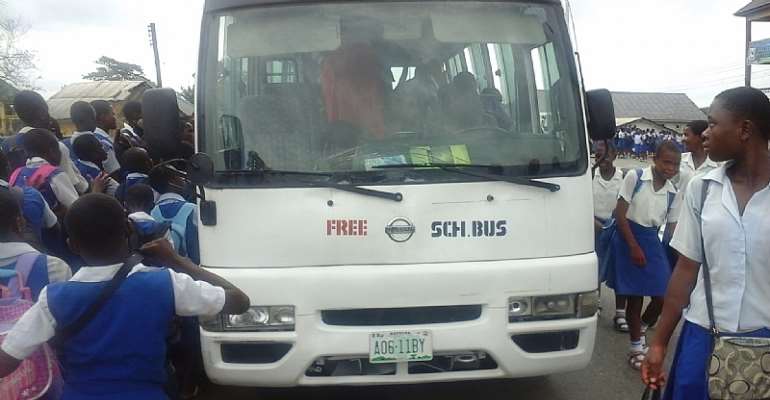A New Dawn in Bayelsa State Basic Education Board

Governor Henry Seriake Dickson posits that education is a liberator. It is an essential tool of development. It is an indispensable catalyst for the development of any society. A society that hesitates to embrace education is invariable want the fast-track of development to leave her behind, hence, the importance for all (EFA) cannot be over-emphasized.
In the light of the above, education in Bayelsa State has witnessed great transformation in all ramifications. The BSUBEB under the present administration has done tremendously well and therefore worthy of commendation. Our intention in this write up is to show-case the mind-boggling initiatives, policies and project of this administration. Bayelsa State was created about 19 years ago.
The State is blessed with what is known as the “Black Gold’’. The revenue from her oil and gas has enormously sustained the State till date, the ‘’Nigeria Project’’ ironically, the level the underdevelopment of her education sector was appalling, four years ago the public schools were nothing to write home about, the schools were in deplorable conditions due to inadequate attention, coupled with these, was the work-force apathy toward education.
Show-casing Current Efforts at EFA Goals
The strategic efforts and objectives of EFA Millennium Development Goals, this has consciously or unconsciously placed every State in the federation on a rat race to ensure that Basic Education is achieved at all level of governance. In Bayelsa State, under the present dispensation, the State has indeed witnessed, as never before, giant developmental strides both in content and policies within the education sector. The present government, under the leadership of His Excellency, Hon. Henry Seriake Dickson on assumption of office on February 14,2012, swung into action, firstly by declaring a “State of Emergency in Education’’ in his inaugural speech. In order to achieve this, government proceeded to setup Education Committee, comprising stakeholders saddled with the responsibility to develop a strategic plan on implementation of its Education policy which included all stakeholders.
The committee came up with laudable ideas on how to revamp the education. These strategies include:
1. Massive renovation and re-construction of primary and junior secondary schools within the basic education sub-sector.
2. Capacity building of all teachers and education managers.
3. Provision of adequate instructional materials to school across the State.
4. Construction of Model Junior Secondary Schools with boarding facilities in each of at the local government headquarters.
5. Establishment of model primary schools with holistic approach for high densely populated schools which comprise of the following: 12 classrooms, ICT hall, Teachers’ Research Centre, Multi-purpose hall, 21 toilets, Headmaster’s Office, Store, Water Borehole and 75KVA sound-proof generator.
6. Provision of semi-model schools for less densely populated schools with similar provision as mentioned above.
7. Establishment of Teachers’ Training Institute to aid capacity-building (and re-training) for all teachers.
8. Enforcing free and compulsory basic education in the State.
9. Establishment of College of Education in the State to produce more qualified teachers.
10. Provision of furniture/modern magnetic boards to all our public schools in the State.
11. Provision of Headmasters/Teachers Quarters within the public schools.
12. Employment of science and ICT teachers in our public schools across the State.
13. Establishment of model schools for the physically-challenged in all the three senatorial districts in the State.
14. Actively participating in all federal government intervention projects as it relates to education in the State, and meeting its obligation of counterpart fund without delay.
15. Provision of school uniforms scheme to primary schools across the State.
16. Establishment of monitoring and supervision agencies within the education sector in the State.
17. Encouraging teachers motivational schemes, such as prompt payment of salaries and other basic allowances as at when due.
18. Sensitization and advocacy programmes to all stakeholders in the education sector.
19. Establishment of School Based Management Committee.
20. Establishment of quality assurance units at all levels of education.
